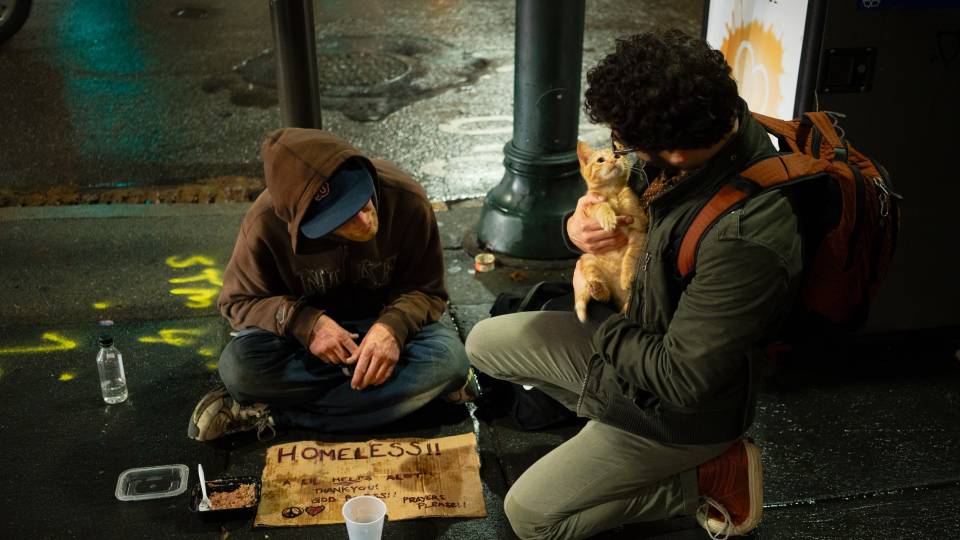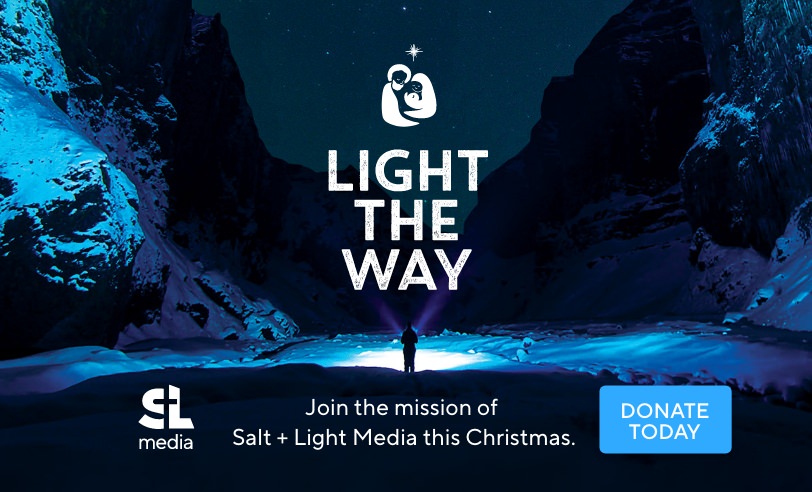

Deacon-structing the Preferential Option for the Poor – Part 5 | Final Thoughts
Deacon Pedro
Sunday, August 25, 2019

Photo by Zac Durant on Unsplash
About a month ago we began looking at what the Church calls the preferential option for the poor. First we saw what Scripture says, then Church documents. After that, we looked at ethical implications, and finally, last week I shared what I had learned from Rick Tobias, former Executive Director of the Yonge Street Mission.
I spent eight years working at Covenant House-Toronto and every time I write about poverty, every example I use– even what I read in Scripture, brings up an image of a real young person that I have worked with. The poor and the needy are real. They are real people, with real lives. We must never forget that.
It’s easy to fall into an attitude that “the poor will be always with us” and that there are organizations that are taking care of their needs. But we must never forget our responsibility towards the poor. We must be attentive to their needs, to their rights and to the dignity that they have as children of God.
This doesn’t mean that I alone can fix the world’s poverty crisis, but I can do my part. First and foremost I have to have attitudes of grace, gratitude, and generosity. These will guide, not just how I respond to the poor, but how I live my life: how I am more attentive to wastefulness, to the sense of entitlement that we sometimes have, and other attitudes which do not contribute to our ultimate end.
If I can offer some final thoughts after the last four weeks of blogging it’s this: The Church cannot contribute to the marginalisation of the poor. When Jesus looked at the multitudes with compassion (Mt. 9:36), He saw them as sheep without a shepherd. Why didn’t they have a shepherd? Because the religious authorities and the legal system of the time had already decided that based on their state in life, these “multitudes” were beneath them. They were oppressed by their own Faith community. That’s the worst kind of oppression.
These “multitudes” exist today. They are oppressed by the state, by society – and also by the Church. The worst kind of oppression is that the sheep have no shepherd. In the Old Testament, the king, David, was the shepherd. That is why Psalm 72 says that the king takes care of the poor. The king, as shepherd, had to care for the people (Psalm 72:4).
Today the shepherd is the pastor. The shepherds are the bishops, priests, and deacons. The Book of Acts tells us that the deacons are ordained to serve the widows and the orphans (Acts 6:1-6). In Matthew’s passage when Jesus looks upon the people with compassion, it says, “The sheep have no shepherd so they are harassed and helpless” (Matthew 9:36). When one is helpless, one is done. When people have been beaten down so much and so often, they stop trying. When this happens to us, something inside of us dies. This is how Jesus describes the multitudes. They are in despair. They have lost all hope.
But in the next verse, Jesus says, “The harvest is plentiful, but the labourers are few.” Jesus says to “ask the Lord of the harvest to send out labourers into his harvest” (Matthew 9:37-38). We are those labourers who are sent into His harvest. But it’s a very specific mission: it’s to the poor people who have no shepherd, who are harassed and helpless. It’s to the poor.
Just after World Youth Day 2002, as I was processing the previous two years that I had spent working for the Planning Committee, I began to feel a calling. This calling was to work for the Church. I did not know what it was exactly at the time. Today I know that part of my journey into the permanent diaconate is part of that call. But the call was very clearly from Matthew 25:35: “I was hungry and you gave me food, I was thirsty and you gave me something to drink, I was a stranger and you welcomed me.” This is something that we must not forget – and that’s why I believe Mother Teresa made a point of using this passage in her famous address at the Prayer Breakfast in Washington in 1994: “Whenever we do this, to the least of these, you do it to me.” When we serve the least of our brothers and sisters, we serve Christ himself.
But there was another part to the call I felt after WYD2002. It had to do with prayer. I know that I cannot give money to every person that asks for it on the street. I can stop and speak with them. I can share a smile. I can treat them as I would like to be treated. I can treat them better than I would like to be treated. And I can pray for them. We have to pray for those whom we serve. In fact, I would say that above all, we have to pray.
Foy Vance has a song titled “Gabriel and the Vagabond” about a man begging on the street.
“His clothes are all worn and he’s holding out his hand.” People walk by because they don’t understand.
But a man stops by, and “I saw a smile inside him as he gently whispered hope.”
And the vagabond “got up to his feet and he sang Hallelujah. People were turning around in the street. He looked them in the eyes and he sang Hallelujah.”
And Gabriel, who had whispered hope to the man, disappeared.
But the vagabond was so moved that when he saw a young girl also on the ground, who, herself is finding it hard to cope for “she never was a fighter,” he came “beside her and gently whispered hope.”
“They got up to their feet and they sang hallelujah. People in the street were turning around. They looked them in the eyes and they sang hallelujah.”
We, as shepherds are called to whisper hope to the poor, so that they too can sing, “Hallelujah!”
 Every week, Deacon Pedro takes a particular topic apart, not so much to explore or explain the subject to its fullness, but rather to provide insights that will deepen our understanding of the subject. And don’t worry, at the end of the day he always puts the pieces back together. There are no limits to deaconstructing: Write to him and ask any questions about the faith or Church teaching: pedro@saltandlighttv.org
Every week, Deacon Pedro takes a particular topic apart, not so much to explore or explain the subject to its fullness, but rather to provide insights that will deepen our understanding of the subject. And don’t worry, at the end of the day he always puts the pieces back together. There are no limits to deaconstructing: Write to him and ask any questions about the faith or Church teaching: pedro@saltandlighttv.org
 Every week, Deacon Pedro takes a particular topic apart, not so much to explore or explain the subject to its fullness, but rather to provide insights that will deepen our understanding of the subject. And don’t worry, at the end of the day he always puts the pieces back together. There are no limits to deaconstructing: Write to him and ask any questions about the faith or Church teaching: pedro@saltandlighttv.org
Every week, Deacon Pedro takes a particular topic apart, not so much to explore or explain the subject to its fullness, but rather to provide insights that will deepen our understanding of the subject. And don’t worry, at the end of the day he always puts the pieces back together. There are no limits to deaconstructing: Write to him and ask any questions about the faith or Church teaching: pedro@saltandlighttv.orgRelated Articles:
>>
SUPPORT LABEL
$50
$100
$150
$250
OTHER AMOUNT
DONATE
Receive our newsletters
Stay Connected
Receive our newsletters

Stay Connected









